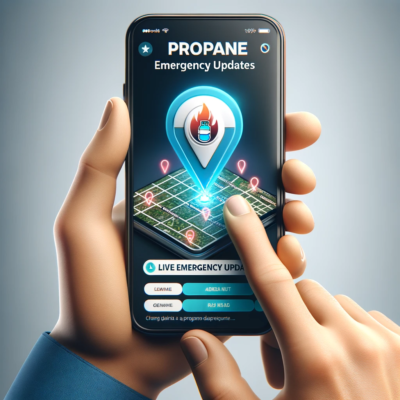Emergency Readiness in Propane Delivery
Ensuring Safety and Continuity for Propane Delivery Services Propane delivery companies face unique challenges when it comes to emergency preparedness. Being ready for any situation, from natural disasters to unexpected disruptions, is crucial. Here, we discuss key strategies to enhance emergency preparedness, ensuring safety and service continuity for propane delivery businesses. Developing a Comprehensive Emergency… Continue reading Emergency Readiness in Propane Delivery
Ensuring Safety and Continuity for Propane Delivery Services
Propane delivery companies face unique challenges when it comes to emergency preparedness. Being ready for any situation, from natural disasters to unexpected disruptions, is crucial. Here, we discuss key strategies to enhance emergency preparedness, ensuring safety and service continuity for propane delivery businesses.
Developing a Comprehensive Emergency Plan
The foundation of emergency preparedness is a well-structured plan. This should include protocols for emergencies, such as severe weather, supply chain disruptions, or technical failures. Regularly updating and practicing this plan ensures the team is ready to act swiftly and effectively.
Training Staff for Emergency Scenarios
Training ensures that every team member knows their role during an emergency. This includes understanding emergency procedures and safety protocols and communicating effectively under stress. Regular drills and training sessions help maintain a high level of preparedness.
Maintaining Communication Channels
Reliable communication is critical during emergencies. Propane delivery companies should establish clear communication channels among staff, customers, and emergency services. This could include backup communication systems, like satellite phones, in case standard lines are disrupted.
Ensuring Equipment and Vehicle Readiness
Regular maintenance of delivery vehicles and equipment is crucial. This includes ensuring vehicles have emergency supplies like first aid kits, tools, and communication devices. Vehicle readiness ensures that deliveries can continue even in challenging conditions.
Building Relationships with Local Authorities
Strong relationships with local emergency services and authorities can greatly enhance emergency responses. Collaborative planning and understanding of local emergency procedures can aid in a coordinated response when required.
Stock Management and Supply Chain Resilience
A robust supply chain and stock management system can prevent shortages during emergencies. This might involve diversifying suppliers or maintaining a reserve propane stock to ensure continuous customer supply.
Customer Education and Engagement
Educating customers about propane safety and emergency procedures is also essential. Providing information on safely storing and handling propane, especially during emergencies, can prevent accidents and ensure customer safety.
Proactive Preparedness
For propane delivery companies, being prepared for emergencies is not just about compliance; it’s about ensuring the safety of staff and customers and maintaining service continuity. By adopting these strategies, companies can navigate through unexpected situations and reinforce their commitment to safety and reliability. PropaneSafetyPro.com can assist with your Emergency Action Plan, Policies and Procedures, Security Plan, Safety Training and Support – all of these with their Propane Safety App. Contact PropaneSafetyPro.com at their site for more information.


